The cost of living means supplements
are a luxury many of us can no longer afford. So, is your diet up to scratch?
We reveal the nutrients you need and the best ways to get them
When was the last time you popped a pill?
If the latest research is anything to go by, it’s probably been a few years.
Market research firm Mintel has revealed that 3 million fewer Brits are taking
vitamin and mineral supplements as a result of the recession. So where does
that leave your health?
It all comes down to your diet, say the
experts. It is possible to get all the key nutrients you need from food - you
just have to commit to trying a little harder. In fact, taking supplements as a
shortcut concerns Dr. Sarah Jarvis, a practicing GP and clinical consultant at
patient.co.uk. ‘There is nothing to suggest taking vitamin and mineral
supplements is as good as eating a balanced diet,’ she says. ‘In my experience,
people don’t take them as insurance, they take them so they don’t have to think
about healthy eating.’
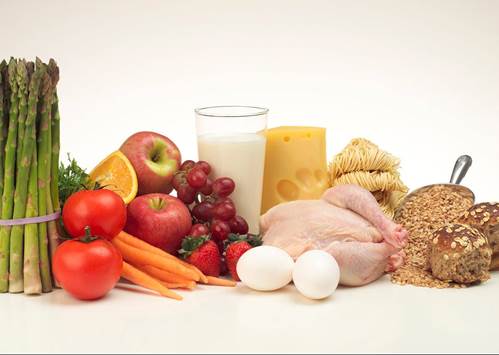
It
all comes down to your diet, say the experts. It is possible to get all the key
nutrients you need from food
But, even if you eat well, you may still
want to take a multivitamin supplement for an added boost, says Shona
Wilkinson, head nutritionist at The Nutri Centre. ‘As a result of processing,
the nutrients in our food have decreased over the years,’ she says. ‘Poor
dietary choices are also causing an increase in nutrient deficiencies. I would
advise taking a multivitamin and mineral supplement for added health
protection.’
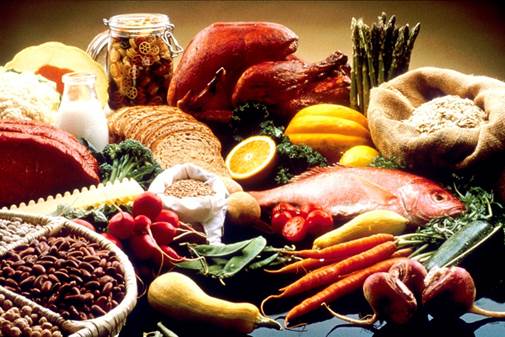
Poor
dietary choices are also causing an increase in nutrient deficiencies.
Who needs it most?
‘Woman who are trying to conceive should
take a 400mcg folic acid supplement before becoming pregnant and continue
taking it until they reach the 12-week pregnancy mark,’ says Dr Jarvis. ‘Folic
acid is central to the nervous system development of the baby and by taking a
daily supplement you can cut the risk of your baby having spina bifida by
around 75 per cent.’
The Department of Health advises vitamin D
supplements for pregnant and breastfeeding women, under-fives and the elderly.
Shona also says those prone to illness or who need extra support should
consider a daily multivitamin and mineral supplement. Children, teenagers and
pregnant women may also require some form of multivitamin supplement support.
Quality control
If you are going to spend your hard-earned
dosh on supplements, choose a good one - it’ll pay off in the long run. Price
is often a good indication of quality. ‘What makes a good-quality supplement is
the source of the ingredients,’ says Shona. ‘For example, calcium comes in many
different forms. Cheaper supplements may opt for a carbonate form, which is not
easily absorbed. If you opt for a supplement which contains a citrate form, it
may be more expensive, but the ingredients will have been formulated to help
your body absorb it.’
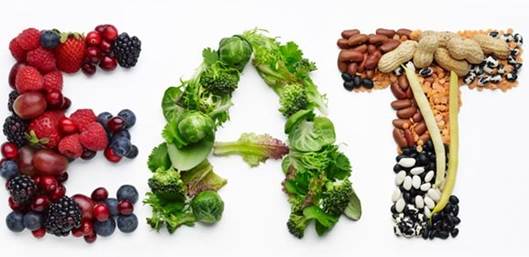
If
you are going to spend your hard-earned dosh on supplements, choose a good one
- it’ll pay off in the long run.
Watch out for fillers and other nasties,
too. Cheaper supplements may contain artificial sweeteners, fillers, binders
and talc. ‘What you’re paying for with a more expensive supplement is better
ingredients, better absorption and none of the nasties,’ says Shona. ‘Spend
your money wisely and contact health stores for advice about which supplements
will be best for you.’
Eat your vitamin
Vitamin A is important for your immune
system, skin and eyes.
Get a dose from: Orange vegetables
including carrots, pumpkins and butternut squash, dark green leafy vegetables,
dairy products, liver and fish.
Vitamin B2 (riboflavin) plays a key role in
good digestion and energy production, helping to convert food into fuel.
Get a dose from: Milk, spinach, asparagus,
turkey, yoghurt, almonds and mushrooms.
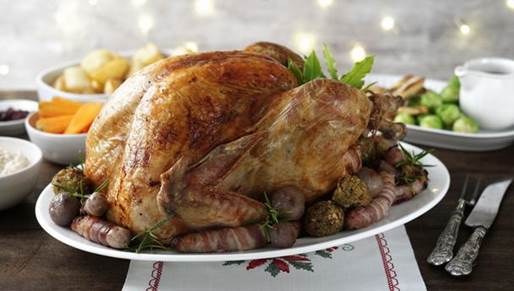
Get
a dose from: Milk, spinach, asparagus, turkey, yoghurt, almonds and mushrooms.
Folic Acid is another B group vitamin, and
works with B12 to form red blood cells. It also reduces the risk of spina
bifida in unborn babies.
Get a dose from: Asparagus, beetroot,
broccoli, liver, brown rice and chickpeas.
Vitamin D, also known as the sunshine
vitamin, is crucial for healthy bone development as it helps the body absorb
calcium. Low levels can lead to rickets and bone pain.
Get a dose from: Eggs and oily fish such as
sardines or salmon.
Calcium is essential for developing healthy
bones 44 and teeth. It also regulates muscle contractions, including the
heartbeat.
Get a dose from: Milk, cheese, butter,
soya, yoghurt and leafy green vegetables.
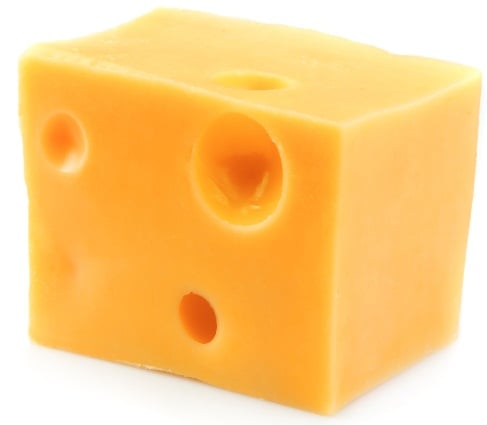
Get
a dose from: Milk, cheese, butter, soya, yoghurt and leafy green vegetables.
Magnesium helps turn the food we eat into
energy, relaxes muscles and strengthens bones.
Get a dose from: Wholegrain bread, brown
rice, green leafy vegetables, nuts, raw chocolate and dairy products.
Vitamin B1 (thiamine) is important for your
nervous system, digestion and muscles. It may also help you cope with stress.
Get a dose from: Whole grains, cereals,
legumes, pork, liver, nuts, molasses and peas.
Vitamin B12 (cobalamin) is vital for the
normal production of red blood cells and nerve formation, as well as brain
health.
Get a dose from: Marmite, eggs, milk,
cheese, liver, oysters and fortified cereals.
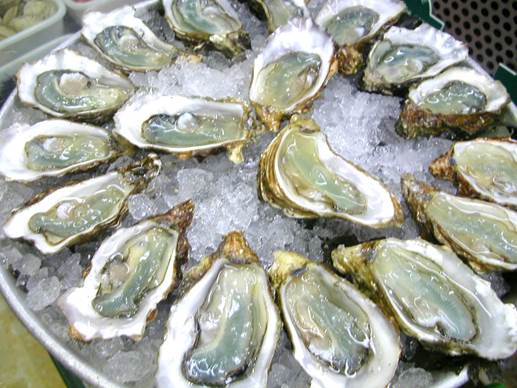
oysters
Vitamin C (ascorbic acid) boosts your
immune system, increases collagen production and plays a key role in wound
healing.
Get a dose from: Citrus fruit, peppers,
strawberries, kiwi fruit, tomatoes and broccoli.
Vitamin E is a powerful antioxidant,
important for preventing oxidative damage to cells. Studies also show it may
help prevent heart disease and eye problems.
Get a dose from: Sunflower seeds, almonds
and spinach.
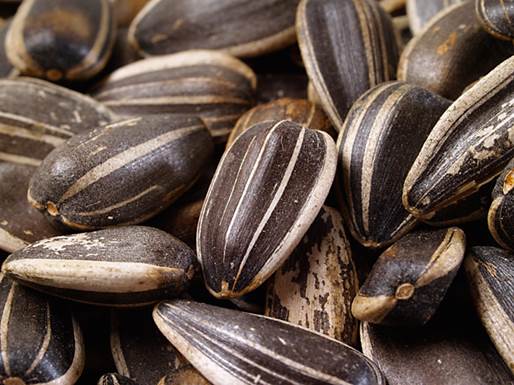
Get
a dose from: Sunflower seeds, almonds and spinach.
Iron is a vital mineral needed to help make
red blood cells, which carry oxygen around the body. If you’re deficient in
iron you may feel tired and weak.
Get a dose from: Lean red meat, nuts, whole
grains and kale.
Zinc is important for a healthy immune
system. It also plays a role in wound healing and processing nutrients in food.
Get a dose from: Nuts, lean red meat,
cheese, milk, whole grains and shellfish.